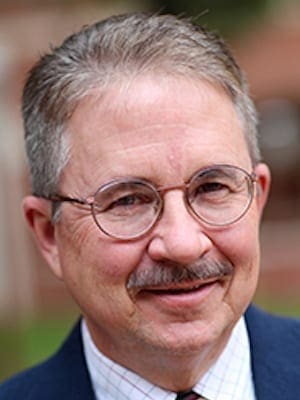Here, in this essay, by “evangelicalism,” I do not mean any particular evangelical movement but what I have described as the “evangelical ethos” – a broad and inclusive spiritual-theological form of Christianity defined by the so-called Bebbington quadrilateral: conversionism, biblicism, crucicentrism and activism.
I have expounded these here much in the past, so I will refrain from doing so again.
Anyone interested can simply look up the “Bebbington quadrilateral” and read about evangelical Christianity – not as a particular movement (the ethos is shared by many movements) but as the spiritual-theological ethos that grew especially out of the Pietist movement in Germany and Scandinavia as well as Great Britain and spread throughout the world.
The ethos of which I speak always existed in Christianity but came especially to the fore in and with a series of “awakenings” among (mostly) Protestant Christians beginning in the early 18th century.
However, once it was recognized as a distinct form of Christian life, people recognized its precursors in the radical Reformation (for example, the Swiss Brethren) and among some Puritans.
I have described and promoted this evangelical spiritual-theological Christian ethos in my books, articles and on my blog.
For the most part, I have attempted to clear up misconceptions about it, especially the one that regards it as political which it is not and never has been.
Although, of course, as with any movement, many both inside and outside the movements marked by the ethos have attempted to hijack it for their political causes.
I am unapologetically evangelical – so long as I can explain what I mean by that. I do not regard myself as part of any particular evangelical movement as I once did.
For many years, I identified myself with the American post-World War II post-fundamentalist, “neo-evangelical” movement associated especially with the National Association of Evangelicals and the Billy Graham ministries and related organizations.
For more about this particular evangelical movement, read “Revive Us Again: The Reawakening of American Fundamentalism” by historian Joel A. Carpenter.
However, I think that evangelical movement is dead. Remnants and relics of it exist, but as a relatively cohesive movement, it is gone.
In case I need to say this – in my opinion (and that of most scholars of evangelicalism) – the evangelical spiritual-theological ethos is not tied to any denomination or organization.
As a church historian-historical theologian, what do I regard as the weaknesses of the evangelical ethos?
Of course, as a kind of Platonic essence, in its purity, I don’t think it has any weaknesses except certain tendencies it seems to carry along with it that have to be resisted because they automatically “pop up” among people who “catch” the ethos of evangelical Christianity (or are raised in it).
The first weakness I find is a tendency of evangelicals to lean toward anti-intellectualism.
Evangelical historian Mark Noll examined and critiqued this so well in his book “The Scandal of the Evangelical Mind” that I don’t feel the need to repeat that.
Suffice it to say that evangelical intellectuals have always found themselves somewhat on the defensive and rarely applauded.
By “intellectual,” I mean a person given to critical inquiry even about his or her own religious (or other) commitments.
The second weakness I find is a tendency of evangelicals to succumb to hero worship.
By this, I mean a tendency to identify men and women among themselves – past or present – who are placed on a pedestal as “especially spiritual” and expected to be immune to the vagaries of fallenness and given spiritual authority beyond that which any human (other than Jesus Christ) deserves.
The third weakness I find is a tendency of evangelicals to eschew organized efforts at social reconstruction to eliminate poverty, hunger and oppression.
Oppression is a concept almost totally lacking among evangelicals – except the spiritual oppressions of Satan, sin and “the world.”
Many evangelicals have been active in charitable work, community development and so on, but few have been actively involved in anti-poverty and anti-oppression programs of a political nature.
Liberation theologies, for example, have been largely rejected by evangelicals as allegedly replacing “spiritual salvation” with “social salvation.”
The fourth weakness I find is a tendency of evangelicals to follow a “Christ against culture” approach (H. Richard Niebuhr) to the arts.
By and large, with some exceptions, evangelicals have neglected the arts. Many are highly suspicious of the arts, just like they are of critical thought (in theology, biblical studies, philosophy and so on).
This has been a notable tendency among evangelicals historically. There are exceptions, of course. I have written here before also about a seeming aversion to writing literary fiction from an evangelical perspective.
The fifth and final weakness (for now) is a tendency I find among evangelicals toward spiritual elitism – to the point of often believing that non-evangelical Christians are not authentically Christian or even saved.
Especially in the past, but still to a very large extent, evangelical Christians have been conditioned to regard Catholics (to say nothing of Eastern Orthodox about which they tend to be ignorant) and “mainline Protestants” as false Christians and unsaved.
The language of evangelicals has been that we are “Christians” and others are something else. This has hindered ecumenical understanding between evangelicals and other Christians.
Evangelical pastors, organizational leaders and institutional administrators need to work to correct these tendencies, and many do.
However, what I have observed is that when they do, they get “push back” from the evangelical grassroots.
Many among the grassroots of evangelical Christianity have fundamentalist leanings that cause them still, in spite of not being fully fundamentalist, to label all such attempts by pastors, denominational leaders, college and university administrators as “on a liberal trajectory.”
These tendencies seem to be endemic to evangelical Christianity – with many outstanding exceptions.
Unfortunately, the exceptions struggle to maintain an evangelical identity among evangelicals. They are often viewed with suspicion.
I struggle with the question of whether these weaknesses are actually endemic to evangelical Christianity or whether they could be overcome with success.
I have seen them overcome with success in places, but often those “places” are marginalized by the evangelical constituents.
Editor’s note: A version of this article first appeared on Olson’s blog. It is used with permission.
Roger Olson is the Foy Valentine professor of Christian theology and ethics at George W. Truett Theological Seminary in Waco, Texas. He is the author of numerous books, including “Counterfeit Christianity” and “The Story of Christian Theology.”


